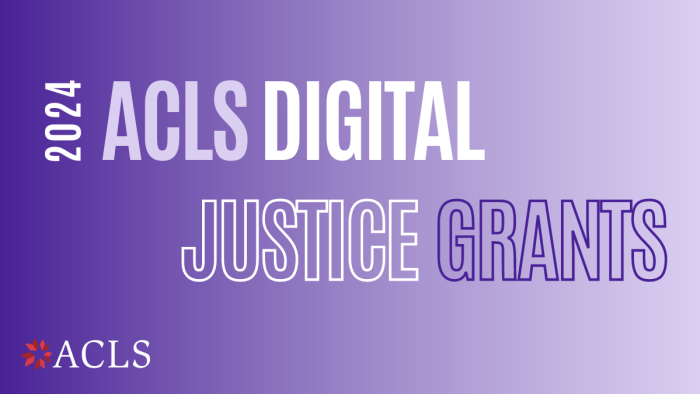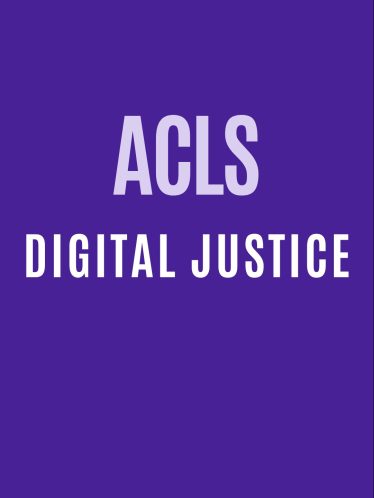ACLS Announces 2024 ACLS Digital Justice Grant Awardees

The American Council of Learned Societies (ACLS) is pleased to announce the recipients of the 2024 ACLS Digital Justice Grants. This program is made possible by a grant from the Mellon Foundation.
The ACLS Digital Justice Grants Program supports digital projects across the humanities and interpretative social sciences that critically engage with the interests and histories of people of color and other historically marginalized communities through the ethical use of digital tools and methods. This year’s competition, which had an 140% increase in applications, introduced the new priority of capacity building, seeking to fund projects that bolster the local ecosystem of digital humanities at their respective academic, community, or cultural heritage institutions. This addition furthers the program’s broader redistributive aim of supporting scholars based at institutions with fewer resources available for this type of work.
For 2024, ten start-up projects have been awarded ACLS Digital Justice Seed Grants of up to $25,000, and seven established and ongoing projects have been awarded ACLS Digital Justice Development Grants of up to $100,000. All grantees will have the opportunity to collaborate with the Nonprofit Finance Fund on developing a long-term financial plan for their projects.
This year’s grantees span a range of methodologies and themes, including data sonification efforts that advance environmental activism, digital archives featuring intergenerational oral histories of Black, Brown, and Queer communities, and machine learning practices that undergird equitable transnational collaboration. The awarded digital humanities projects engage audiences both inside and outside of academic institutions, and count among their grantees librarians, independent scholars, and cultural heritage institution workers.
“This year’s awarded projects go above and beyond simply centering marginalized communities in their digital outputs,” said Keyanah Nurse, ACLS Program Officer of IDEA Programs. “They offer critical perspectives that name how systems of power and privilege function, creatively mobilizing digital tools to imagine–and actualize–more ethical, intentional, and just ways of producing knowledge, fostering collaborations, and advancing social equity.”


